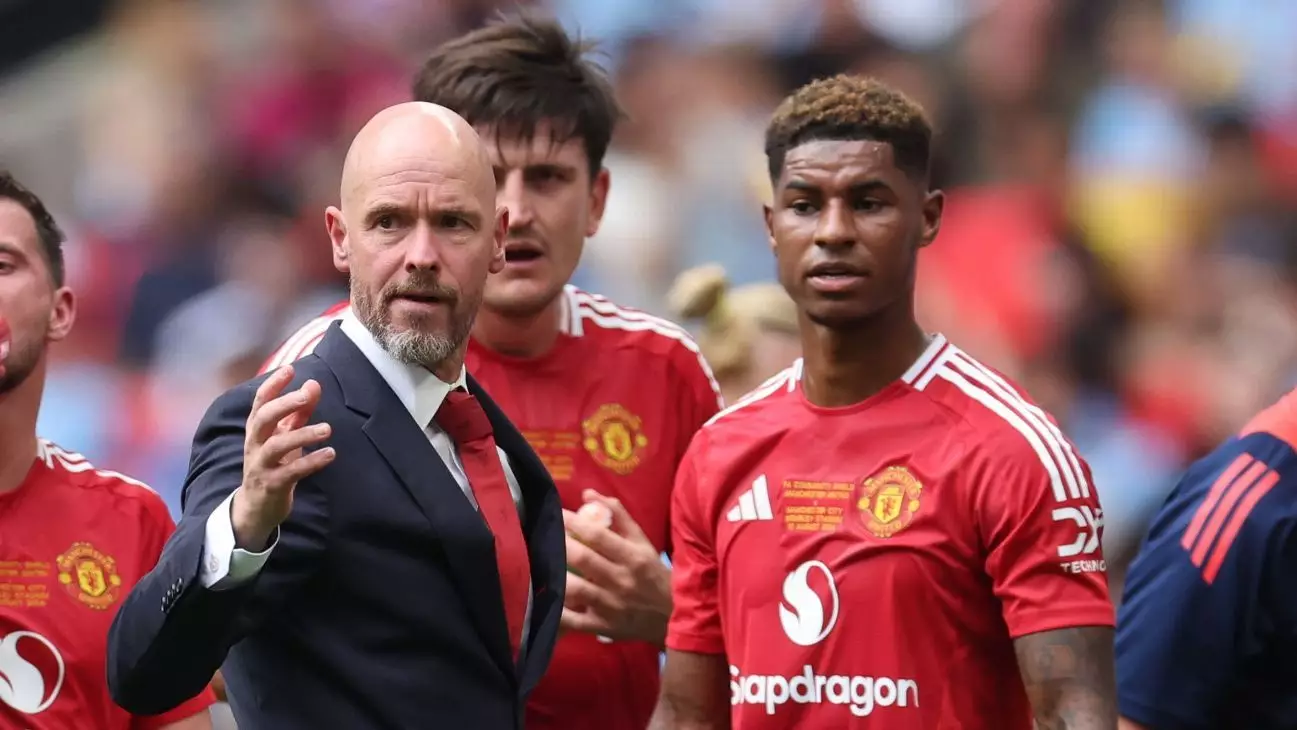In the heart of London’s Selhurst Park, Manchester United’s recent foray into the Premier League ended in a disappointing draw against Crystal Palace. The match, much anticipated after United’s offensive prowess in earlier games, showcased a first half that hinted at potential triumph yet culminated in a frustrating goalless outcome. United dominated the early stages, creating ample opportunities but failing to translate this advantage into goals—a recurring theme that raises questions about the team’s consistency and finishing ability.
One of the most debated aspects post-match was Erik ten Hag’s surprising decision to bench Marcus Rashford, who had been instrumental in his team’s attacking lineup. Coming off a thrilling game against Southampton where he found the net for the first time since March, and a stellar brace against Barnsley, Rashford’s exclusion was met with confusion. The insertion of Alejandro Garnacho in his stead did not yield the expected results, as the young forward squandered prime chances, leaving fans and pundits alike questioning the manager’s judgment. This tactical decision, ostensibly aimed at squad rotation, reflects a nuanced challenge faced by coaches who must balance player fitness with lineup effectiveness.
In the wake of the controversy surrounding Rashford’s omission, pundits quickly latched onto the narrative of discord between him and Ten Hag. Jamie Redknapp’s insinuations suggested potential internal issues, a claim that Ten Hag staunchly defended against. “It’s crazy…when you don’t know,” the manager retorted, citing the decision as a straightforward rotation strategy rather than a result of tension or disagreement. This exchange highlights a critical aspect of modern football: the media’s role in generating narratives that can overshadow genuine tactical reasons for on-field decisions. Ten Hag’s insistence on clarity is essential, as transparency helps maintain player morale and fan trust, especially in turbulent times.
The Bigger Picture for Manchester United
Despite the manager’s reassurances, the current position of the club in the league—the bottom half with just seven points from five matches—tells a more sobering story. Only time will reveal whether Ten Hag’s strategic choices will pay dividends. Upcoming fixtures against FC Twente in the Europa League and a pivotal encounter with Tottenham beckon, representing both a chance for redemption and a test of the manager’s tactical acumen.
As the season unfolds, the spotlight will remain firmly on Ten Hag to ensure that Manchester United not only secures results but also cultivates a cohesive unit on the pitch. Such challenges are not unfamiliar in the storied history of the club, but the expectation for immediate improvement is palpable among fans and stakeholders alike. What remains to be seen is whether the manager can navigate this turbulent period and restore United to its former glory, all while maintaining player harmony amidst intense scrutiny.

Leave a Reply